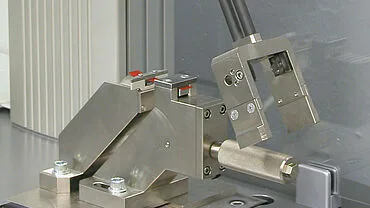Polyphenylene sulfide (PPS) is a semi-crystalline material belonging to high temperature polymers with a melting point of 285ºC. PPS is brittle in nature and hence
is often used with fillers. Carbon fibers are found suitable to enhance the mechanical properties, especially the impact resistance of PPS. However, due to the high cost
of virgin carbon fiber composites, recycled carbon fibers appear to be a growing segment in the composites industry. Decommissioned aircraft, expired prepregs, and
manufacturing scraps may be considered as the major sources of recycled carbon fibers.
Such PPS-carbon fiber blends can be used in public transportation applications, automotive components, etc., and hence, process performance properties such as
Izod impact are crucial parameters for researchers and the industry. We used an impactor to perform impact tests on samples made by extrusion-compression of a
blend of PPS (powder matrix) and recycled carbon fibers (fiber lengths varying from 6.35 mm to 12.7 mm). These molded panels were cut (3.17 mm x 10.16 mm) and notched
using a CEAST automatic notcher AN50 as per ASTM D256. We used a pendulum to impact carbon/PPS samples conforming to ASTM D256.
The impact results showed energy absorption values ranging from 0.5 J to 3.50 J. The failure mode was repeatable and consistent fiber-matrix interactions were observed.
The impact results appear to be sensitive to the fiber orientation in the processed panels as a result of the extrusion-compression molding process.



